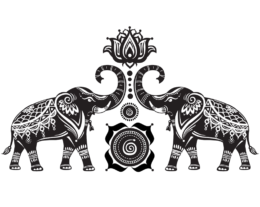Kanji, one of the three captive bonobos whose mental abilities were studied in the study
App initiative
Bonobos is in a hurry to help a person who does not know what they know, there is a sign that they can reduce the mental state of others.
The ability to think about what others are thinking about Theory of mindThere is an essential skill that allows humans to navigate their social world. This enables us to recognize that a person can catch different beliefs or attitude for his own, underlining others to understand and help others properly.
The question of this question is whether even among our closest living relatives, the principle of mind has been warmly debated for decades. Despite Mixed resultNon-human great monkeys seem to be some aspects of this ability, suggesting that it is more developing than the idea. For example, the wild chimpanzee who sees a nearby snake, a fake one, seems to be called out Vigilant group member They know that they have not already seen it.
But we are recalling clear evidence from controlled settings that primates can track a perspective that is different from itself and then works on it, Luke Townro At Johns Hopkins University in Maryland.
To check this, the townaro and Christopher cripneyAt the University of Johns Hopkins, it was also tested as to whether three men Bonobos at APE initiative research center in Iowa could identify ignorance in someone with whom they were trying to cooperate, and then to solve the work Pointing them to help.
Bonobo and a user had three upper plastic cups on a table. Another researcher made a barrier between the user and the cup, then hid a cure like a juicy grape under one of them.
In a version of the experiment, “status of knowledge”, a window in obstruction allowed the user to see where the treatment was kept. In the “state of ignorance”, his approach was completely blocked. If the user found the food, they will give it to Bonobo, which they knew provide an inspiration to the monkeys to share it.
Townro and Krupany noticed whether the app had gestured on the cup, and how quickly he had pointed out after the removal of 24 tests for each position.
He found that, on average, Bonobos took 1.5 seconds less time to indicate and indicated about 20 percent more tests in the event of ignorance. “It indicates that they can actually take action when they realize that someone has a different approach to themselves,” Krrupni says. It seems that Bonobos understand the facilities of others, what other people are thinking that researchers historically assume that they do not understand, they say.
This simple yet powerful research gives experimental support for existing findings from wild apps, says Janna kle At Durham University, Britain. However, she warns that the conclusions may not apply to all bonobos because the study animals were raised in human-oriented environment. But it is no different from the display results that there is an ability, she says.
Indeed, finding the ability in these three bonobos indicates that the ability is present within their biology and is very likely, even as biology of our general ancestor, Krrupni says.
“It suggests that the possibility of our ancient human relatives also had this ability and they could use each other for cooperation and coordination,” Laura Lewis At the University of California, Berkeley. “By understanding that when someone can be ignorant, especially about the developmentally important information like a place of food, our ancestors have these abilities to communicate and coordinate more effectively with their social partners May be used. “
Subject:
(Tagstotransite) Animal (T) Monkey and Apes (T) Animal Intelligence



